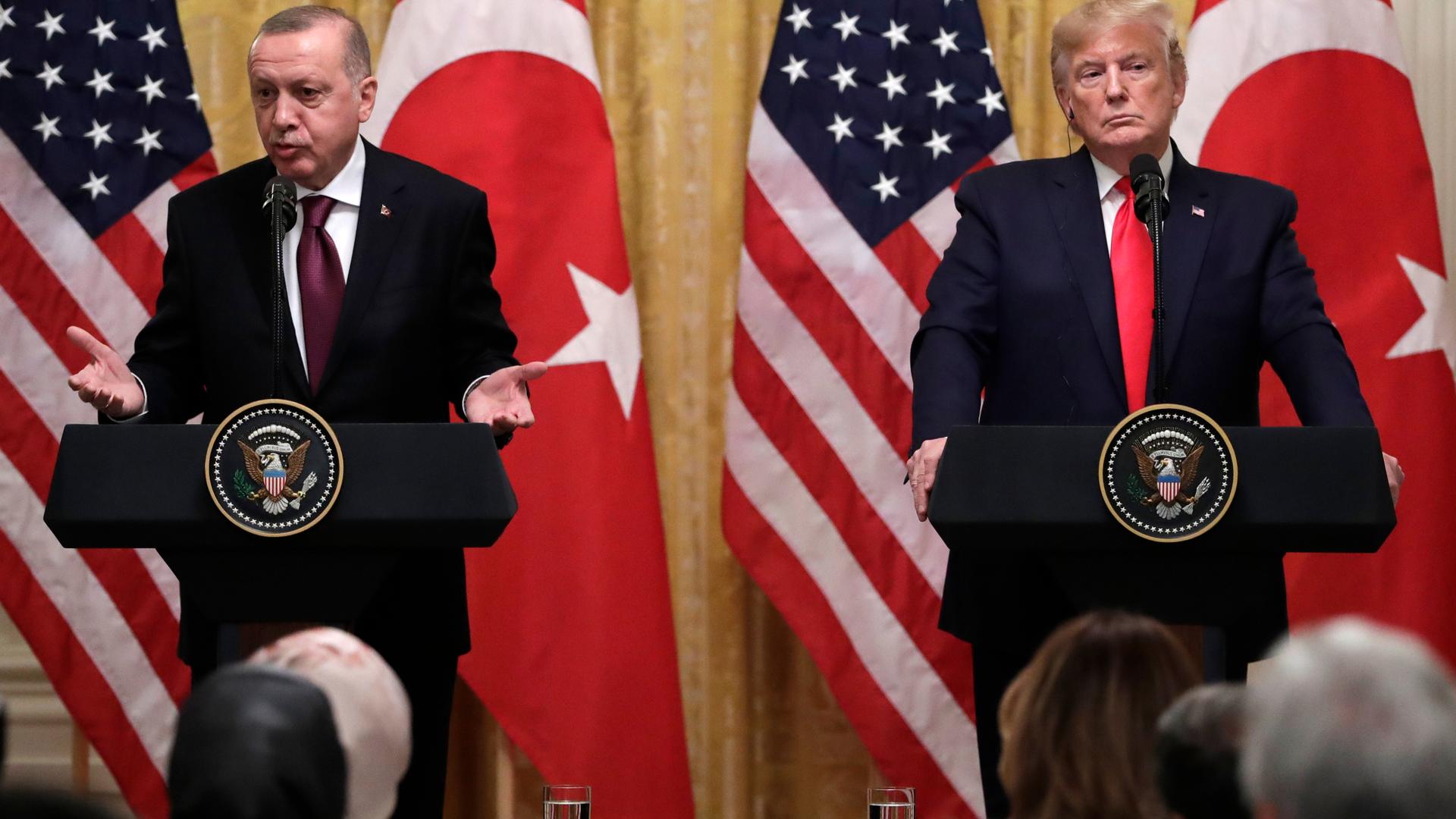Despite the currently strained relationship, the two NATO allies are undoubtedly stronger together than they are apart.
For decades, US-Turkey relations have been carried on with a strength that has kept their vital strategic assets intact. The importance of Turkey’s geopolitical and strategic position and what it represents for the security of the West and the Atlantic Alliance has allowed the partnership to remain critically important.
Turkey-US relations have passed harsh testing times before, from the Cold War to the Korean War and the Gulf War in 1990-1991.
The strategic barrier between the East and the West that Turkey represented for the Atlantic alliance during the Cold War shaped Turkey’s Atlantic-centric foreign policy, formulations, and world view. Turkey has remained, for decades, as the crucial flank actor of the alliance and defended European security as the vital bastion.
There have been 27 crises between the two NATO allies in the past 60 years. After the 2003 Iraq War, the Middle East started to change drastically. The Arab Spring around the centennial anniversary of Sykes-Picot opened the floodgates and questions for the future of all regional actors. This shifting strategic landscape brought to Turkey-US relations new testing zones and diverging interests, and at some points, a lack of common strategic targets exacerbated the strain on the relationship.
Turkey encountered on its borders one of the greatest calamities of the century, the Syrian civil war, Iraq war, fighting against Daesh, YPG-PKK, and other terrorist organisations. The enduring instability in the Middle East has placed tremendous humanitarian, refugee, and economic demands, as well as strategic and military threats, on Turkey and its security. The regional agenda and geopolitical priorities over the Middle East and its future have started to change between Turkey and the United States.
However, the instability in the Middle East and around Turkey profoundly threatens both the United States’ and Turkey’s interests.
With that said, 2019 has been a tough and contentious year for the relationship. President Trump’s policy of continuing to arm the YPG-PKK, despite the decision to withdraw US troops from northeastern Syria, clashes over goals and expectations in the Middle East, the lack of any progress on the extradition of FETO leader Fetullah Gulen, and the arrest of Turkish citizens, have not been taken lightly in Turkey.
On the other side, the relations were further marred by the arrest of several people of Turkish origin working in American consulates, Turkey’s Operation Peace Spring and the continued discomfort of Turkey purchasing the S-400 defence system has angered US policymakers.
All of this remains unresolved.
The S-400 issue will be more problematic this year in April when Turkey activates the missiles despite the White House’s understanding of Turkey’s position; Congress, however, will not change its mind to on punishing Turkey through harsh sanctions.
Also, Turkey has changed the game in northern Syria, so the Turkey-US partnership in Syria in 2020 is still an unknown variable. We know that Turks and Americans are on the same page on calling for Russia and Assad to stop killing innocent civilians in Idlib.
Some of the more positive news is that Turkey and the US have agreed to increase trade volume to $100 billion. We see significant steps from Turkish and American businesses working toward a better Turkey-US economical partnership.
I would say that President Erdogan and President Trump are keeping the relationship alive since many anti-Turkish groups are trying to sabotage the friendship.
Turkey’s actions in the eastern Mediterranean and Libya are a new addition to the Turkey-US relationship, since Greece, Cyprus, and their allies are trying to sway the US to their side.
The fact is, an unstable Turkey does not benefit from the strategic interests of the United States or Europe, nor does it serve peace and stability in a region already devastated by volatility.
Both the United States and Turkey need one another, and they need to continue to work together to combat terror organisations that threaten a NATO ally, to defeat Daesh, and to resolve any international disputes.
The two NATO allies are undoubtedly stronger together than they are apart.
Author: Ali Cinar
Ali Cinar is a Senior Foreign Policy Expert and a 2019 Ellis Island Medal of Honor Recipient.
Source










Discussion about this post